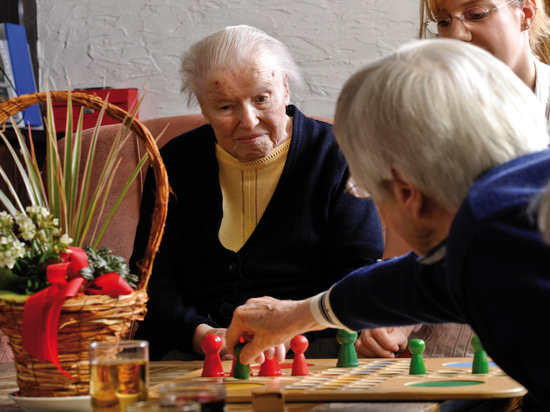Named six ways to beat memory impairment
[ad_1]

Based on the results of a 10-year study, six lifestyle options were named that slow down memory decline. The Beijing researchers found that people over 60 who had a healthier lifestyle benefited the most.
A combination of a healthy lifestyle, such as a healthy diet, regular exercise, playing cards, and socializing at least twice a week, can help slow the rate of memory decline and reduce the risk of dementia, according to a long-term study.
As The Guardian writes, memory is a fundamental function of everyday life that continually deteriorates as people age, impairing quality of life and productivity, and increasing the risk of dementia.
Previous research data was insufficient to evaluate the impact of a healthy lifestyle on the memory trajectory, but the study now suggests that a combination of several healthy lifestyle choices – the more the better – is associated with a reduced rate of memory decline.
“A combination of positive healthy behaviors is associated with slower rates of memory decline in cognitively normal older adults,” Chinese researchers from the National Center for Neurological Disorders in Beijing write in BMJ.
The combined practice of several healthy lifestyle choices “was associated with a lower likelihood of progression to mild cognitive impairment and dementia,” the researchers added.
Researchers analyzed data from 29,000 adults over the age of 60 with normal cognitive function as part of the China Study on Cognition and Aging.
At the beginning of the study in 2009, memory function was measured using tests and people were tested for the presence of the APOE gene, which is considered the strongest risk factor for Alzheimer’s disease. The subjects were then followed up for 10 years with periodic evaluations.
A healthy lifestyle indicator was calculated, combining six factors: healthy diet; regular exercise; active social contacts; cognitive activity; to give up smoking; and non-consumption of alcohol.
Based on their score, which ranged from zero to six, participants were divided into lifestyle groups—favourable (four to six healthy factors), moderate (two to three healthy factors), or unfavorable (0 to 1 healthy factor)—and into APOE and non-carrier groups.
Eating at least seven of 12 food groups was considered healthy: fruits, vegetables, fish, meat, dairy, salt, butter, eggs, grains, legumes, nuts, and tea.
The second area of healthy behavior was writing, reading, playing cards or other games at least twice a week.
Other areas included not drinking alcohol, exercising more than 150 minutes per week at moderate intensity or more than 75 minutes at high intensity, and never smoking or quitting smoking.
Social contact at least twice a week was the sixth healthy behavior, including activities such as visiting family and friends, going to meetings or parties.
After accounting for factors that may have influenced the results, the researchers found that each individual healthy behavior was associated with slower-than-average memory decline over 10 years.
Healthy eating had the strongest effect on slowing down memory decline, followed by cognitive activity and then exercise.
People with the APOE gene, who were generally healthy, also experienced a slower rate of memory decline than people with the APOE gene, who were the least healthy.
Overall, people with four to six healthy behaviors, or two to three, were nearly 90% and almost 30% respectively less likely to develop dementia or mild cognitive impairment compared to those who were the least healthy, according to the BMJ.
Dr Susan Mitchell, Head of Policy at Alzheimer’s Research UK, comments: “This is a well-conducted study that followed people over a long period of time and adds to the strong evidence that a healthy lifestyle can help support memory and thinking skills. with age. Too few of us know that there are steps we can all take to reduce our chances of getting dementia later in life.”
[ad_2]
Source link








